Generally, there are two types of lease agreements that incorporate the early termination clause: rental agreements and rent-to-buy agreements. It is used when a tenant wants to terminate the agreement prematurely.
A clause of early termination is part of a lease agreement where a landlord agrees to allow a tenant to terminate the agreement at any point in time.
The early termination clause usually releases the property or offers monetary compensation. It is an important clause in lease agreements because it basically determines whether the tenant will be required to pay for any vacant period until the property is fully occupied.
A typical lease agreement will have a provision to allow the tenant to give an early termination notice. This clause aims to allow the tenant to vacate the property before the end of the lease agreement. If you do not have a clause allowing your tenants to give an early notice, they will only have two options when they want to leave.
The first option is to remain in the property and wait until the end of the lease agreement and pay you the rent for all remaining months, and you would not be able to get a new tenant until the period has lapsed. The second option is for them to stop paying you, and after a grace period, they can leave without owing you anything. Neither of these is desirable nor appropriate; therefore, your lease agreement must include an early termination clause.
What to Include in an Early Termination Clause
Lease agreements usually differ for commercial and residential properties. However, the introductory provisions for early termination of the lease agreement are similar for residential and commercial properties. In both scenarios, all of your tenants must be aware that they have a right to give early notice and the impact if they do so.
Other standard elements that should be captured include:
Minimum notice
The clause should include the minimum notice period to be invoked. This is the amount of time a tenant needs to provide notice before submitting an early termination notice. As a landlord, you would want to ensure that your tenants give at least 30-60 days’ notice before they can end their agreement so that you have enough time to find a new tenant.
Written notice
The tenant should be required to give written notice to terminate their agreement. This could include an email, letter, or postcard and should be clearly stated in the lease agreement. In addition, the tenant should also include their current address and billing information.
Fees
You should include a clause specifying any fees that the tenant is expected to pay if they decide to terminate the lease before the end of the fixed term. This can include a penalty fee, and this fee should be specified in the clause. Again, it would be best to determine what happens to any payments (including deposits) that have already been made but have not been applied against rent or other charges.
Effective date
The effective date should be specified. This is when the lease agreement will no longer bind the tenant. Therefore, the earliest time a tenant can invoke this clause is when they have performed all their obligations under the lease agreement and have given proper notice.
Termination effective
In addition to specifying the date, it is also crucial that you specify when the termination will come into effect. This can be up to 30 days after giving proper notice, and both you, as the landlord and your tenant, should be aware of this.
Back rent
The lease agreement should include a provision that defines how any back rent will be calculated and paid. The tenant should be required to pay any back rent before paying any fees, and it should be evident in the agreement how the balance will be calculated.
Notification void
It is imperative to make it clear that if a tenant gives an early termination notice without any reason or without meeting the terms of the lease agreement, such as giving proper notice, failing to pay stipulated fees on time, or breaking any other terms, then their notice is void and would not be effective.
Early termination fee (buy-out option)
It is important to include the early termination fee when preparing your lease agreement. The fee usually varies, but, in most cases, it is two months’ worth of rent. It will help protect you as well as give the tenant the option to terminate their agreement early. It may help you cover the expenses while you wait or search for a new tenant.
Other than this, you may choose to offer the tenant a buy-out option, depending on the lease duration. A buy-out option is simply an option for the tenant to continue paying the rent for the duration of the lease agreement until a new tenant is found.
Don’t seize the security deposit as rent
A security deposit is supposed to cover any damages or discrepancies that may arise during the tenancy. The security deposit is not rent and does not have anything to do with the monthly lease amount that you charge your tenant. A security deposit should only be used for repairs or damage to the property and should never be used to collect rent from your tenant because then you are violating the law.
Most tenants usually anticipate that they may lose their security deposit. As a result, they may intentionally damage the property to make it seem like they had to pay more than they did. Therefore, it is vital that you clearly state in the lease agreement how much money the tenant will be liable for and how much you will charge them for repairs.
Suppose you hold a security deposit for damages that occurred during the tenancy. In that case, you should list this amount in the agreement so your tenant understands what is expected of them in terms of damage. It can also be helpful to list these costs separately from the rent being charged so that your tenant knows how much it will cost them to repair any damages and what they will be paying.
As much as the security deposit usually covers two months’ worth of rent, the same as the early termination fee, it is recommended that you not accept the security deposit in place of an early termination fee. This is because the tenant may not feel obligated to protect the property anymore, and they may cause more damage, which may be very costly to repair. Should you accept the security deposit as the early termination fee and the tenant causes more damage to the property, you may be forced to file a claim at the small claims court demanding that the tenant pay for the damages. This process may be slow, costly, and even more stressful.
Clause Examples
Given below are early termination of lease clause templates:
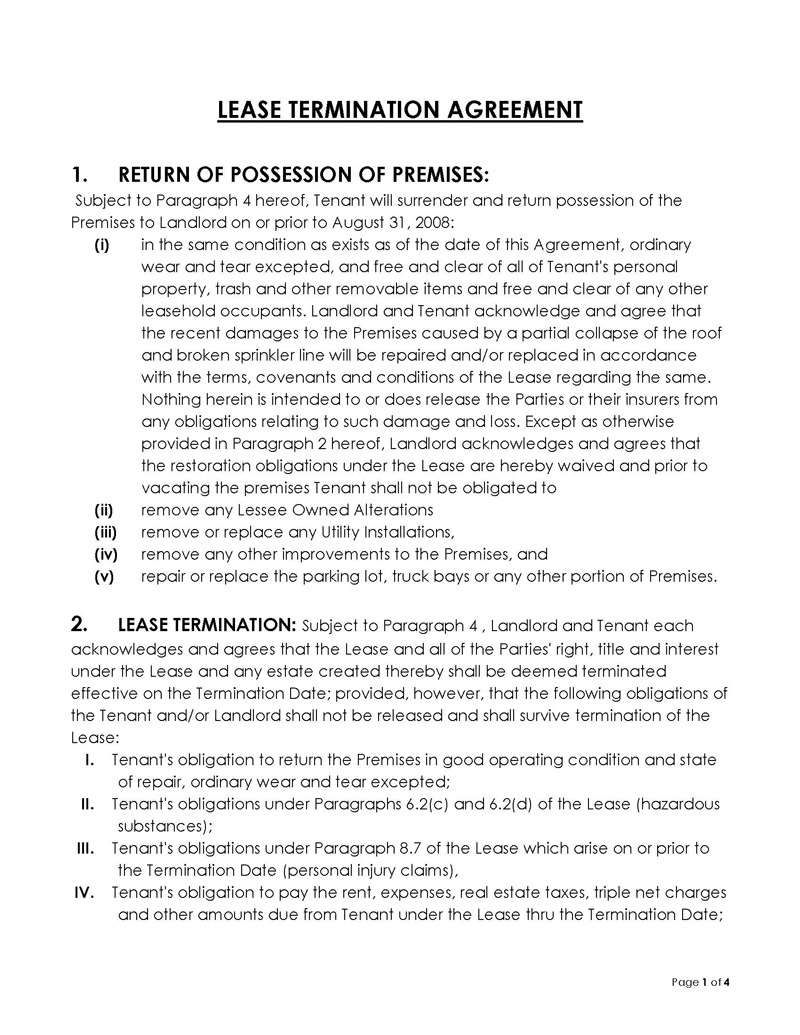
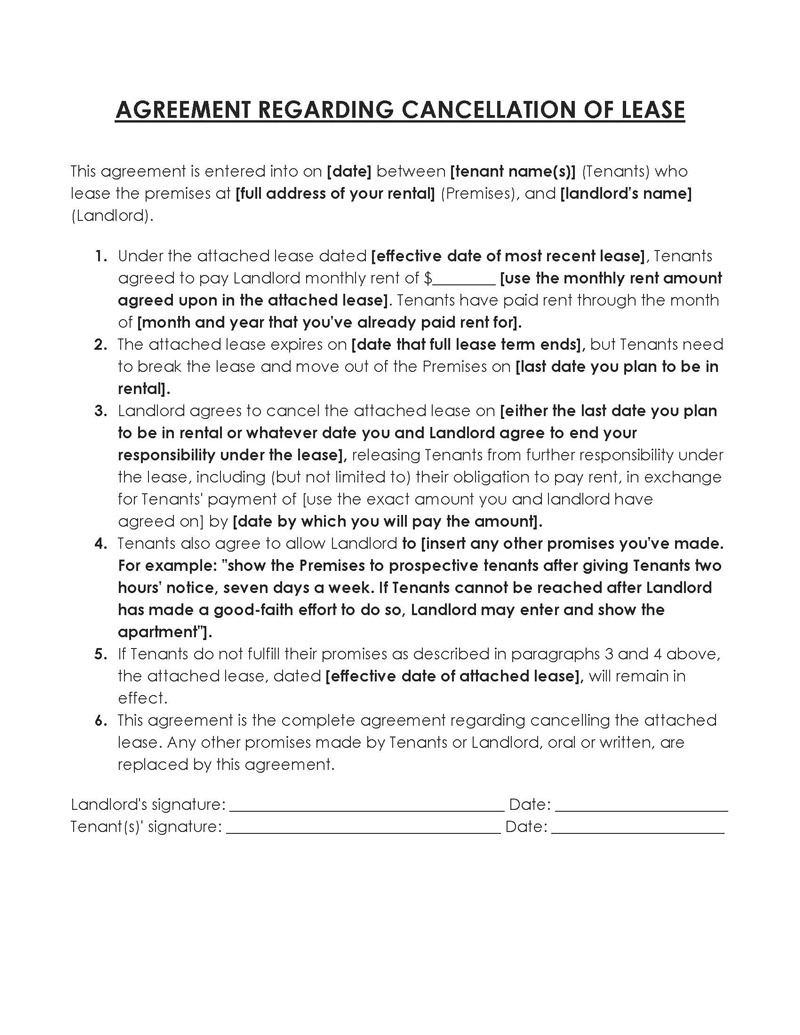
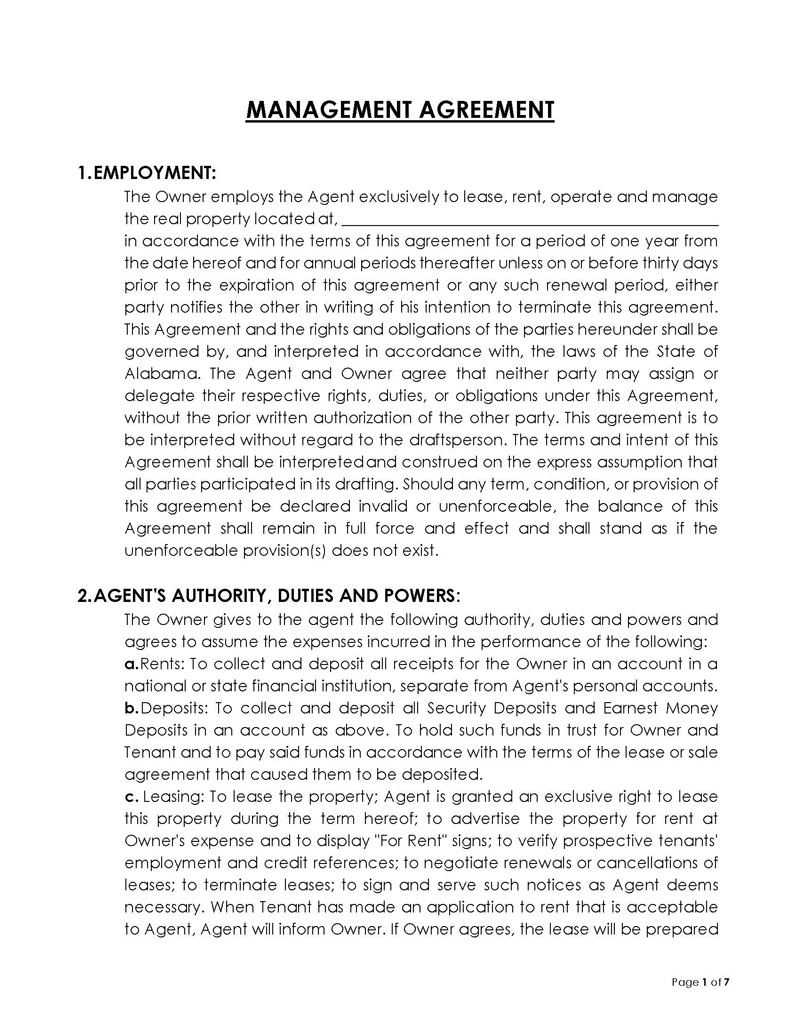
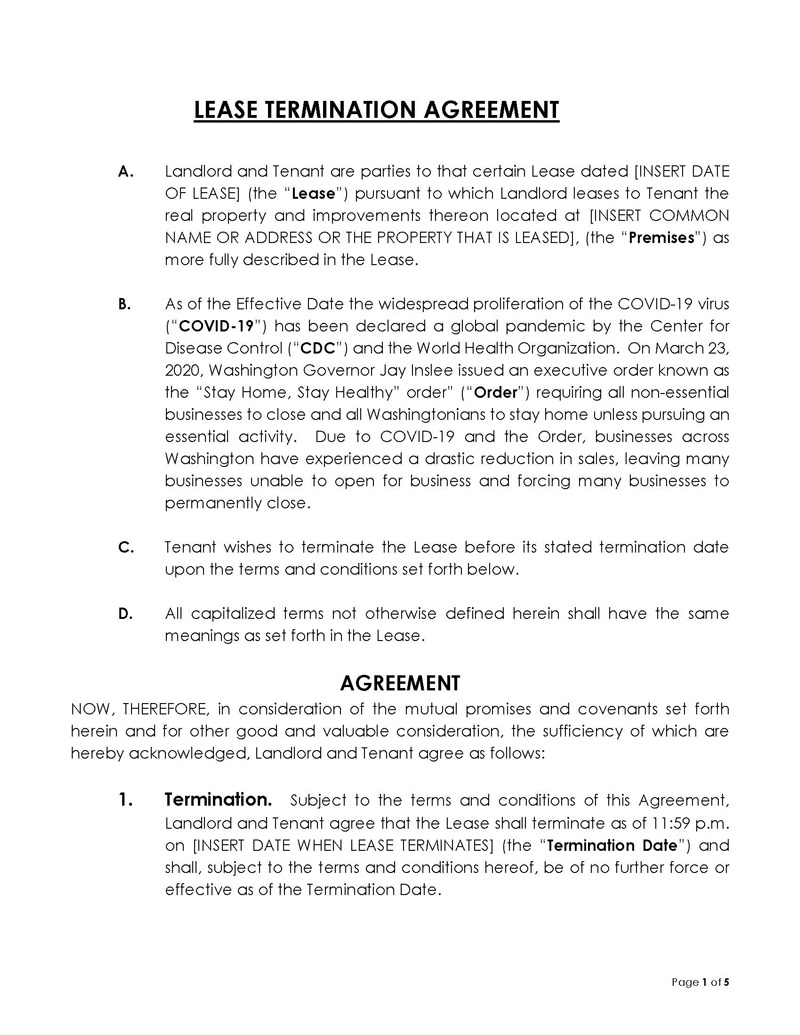
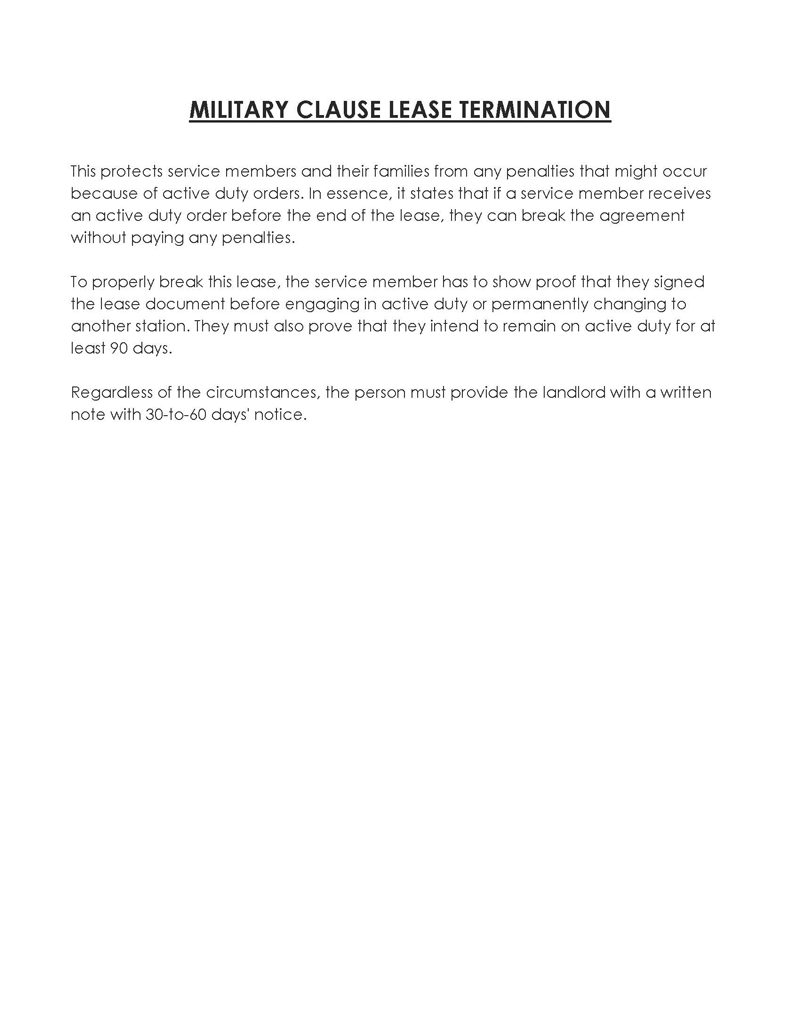

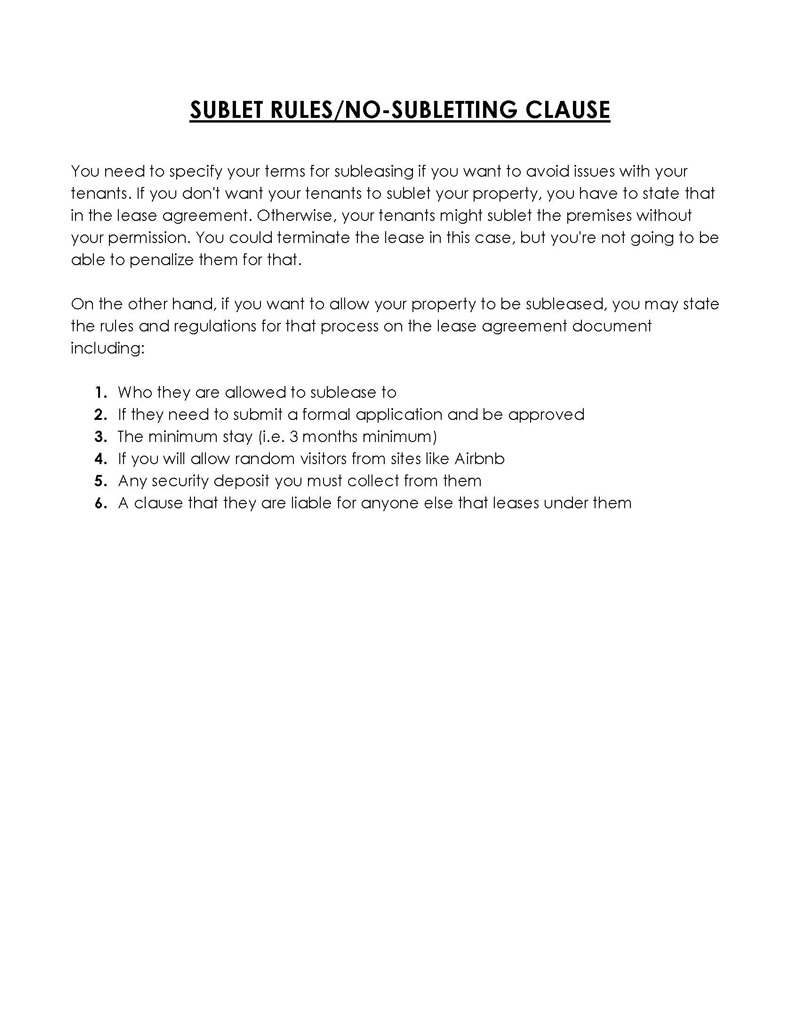
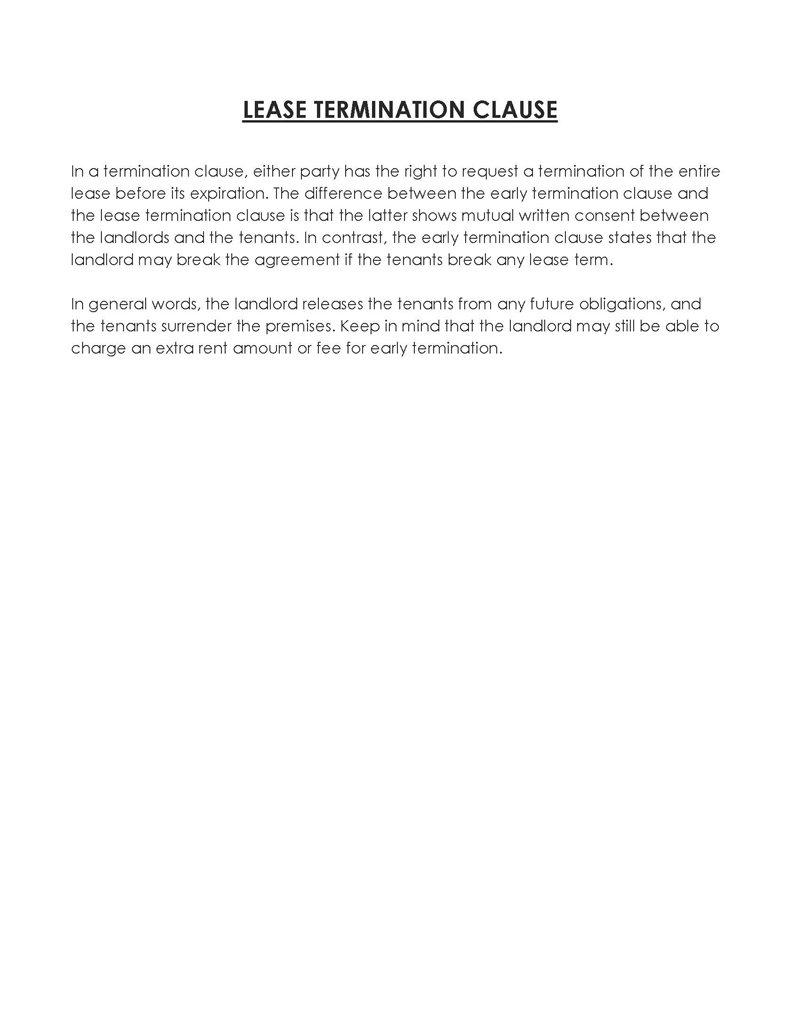
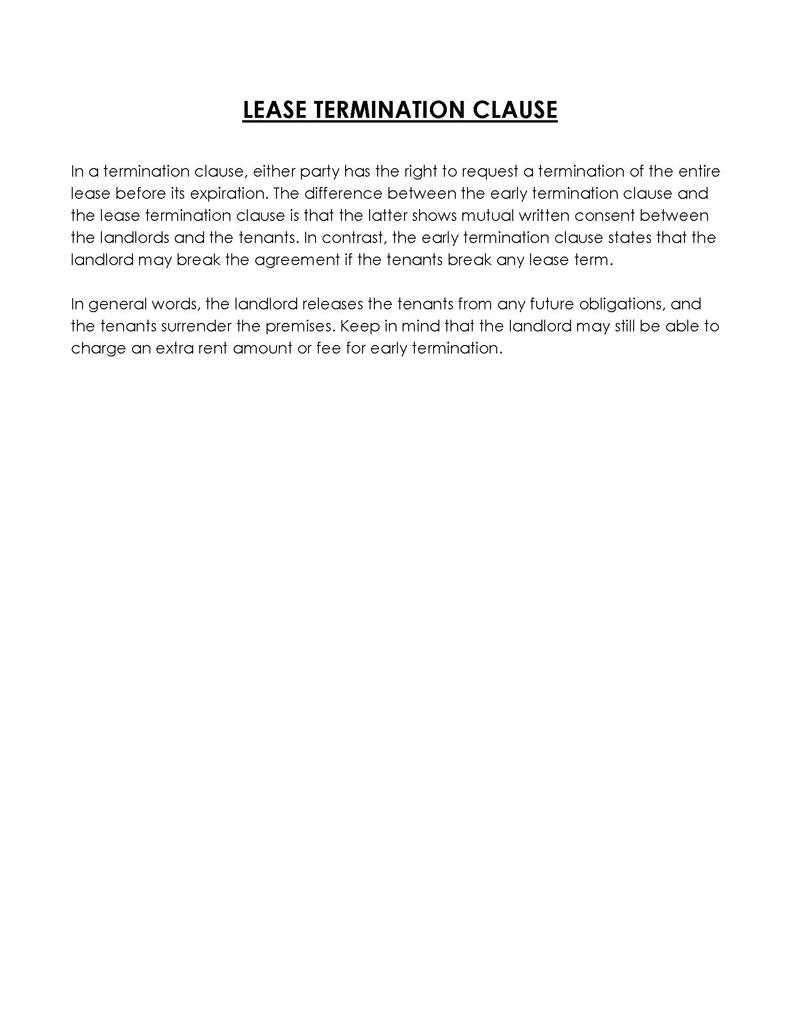
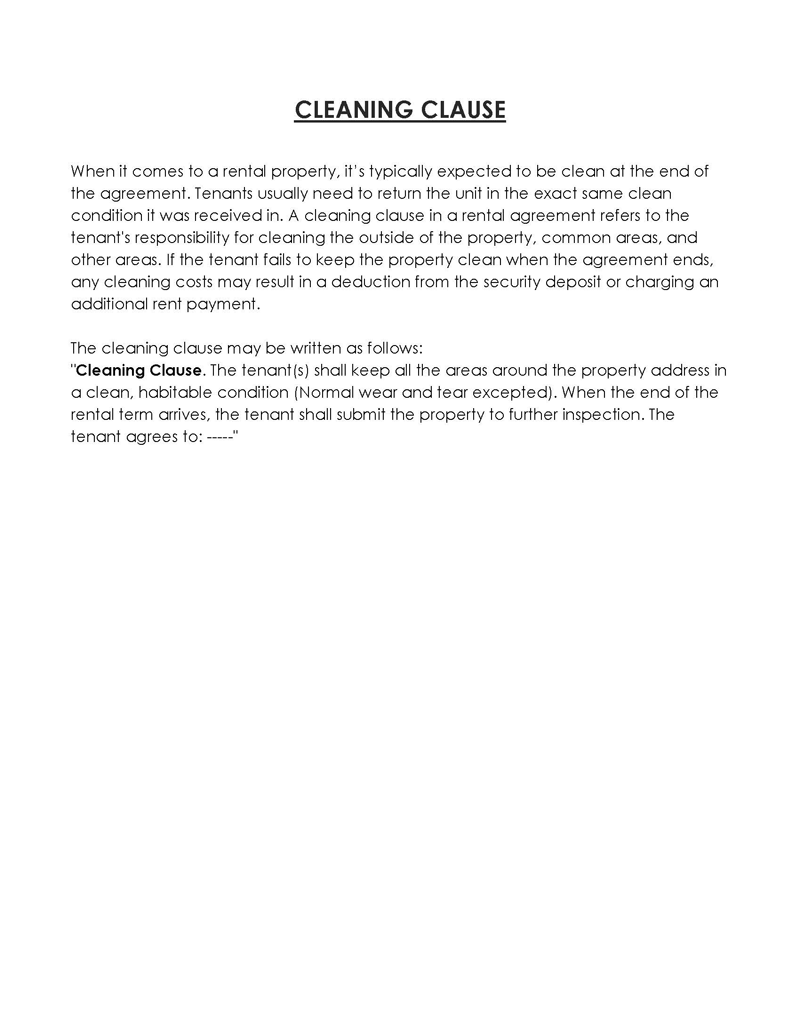

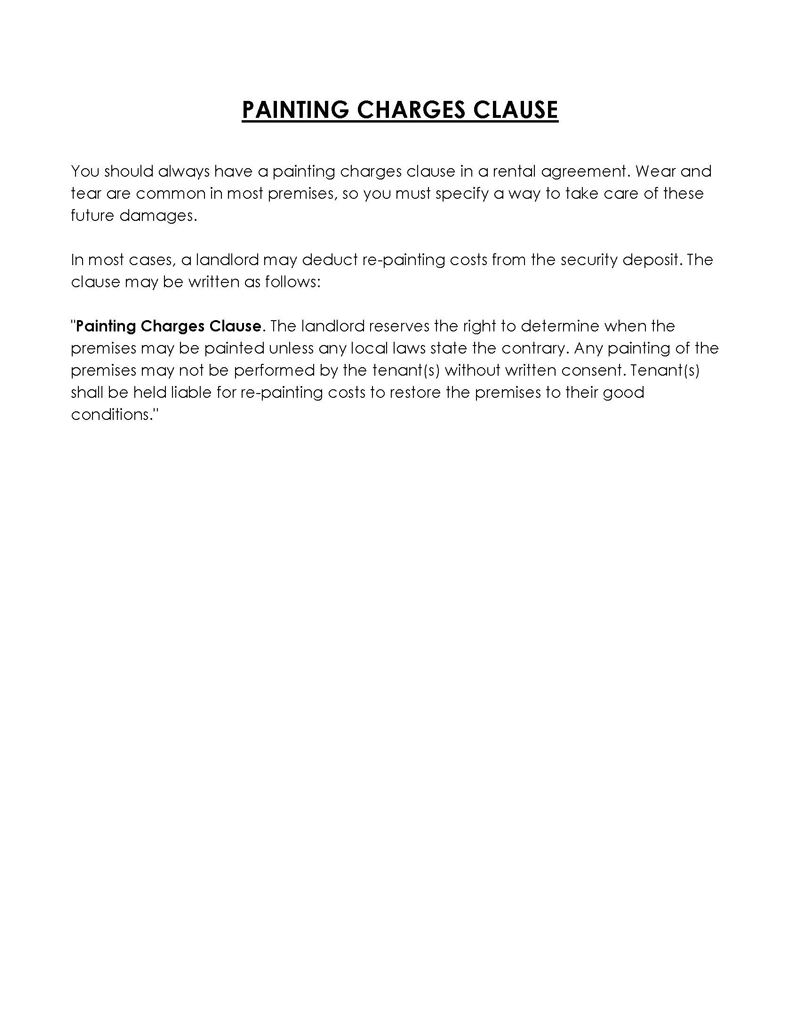
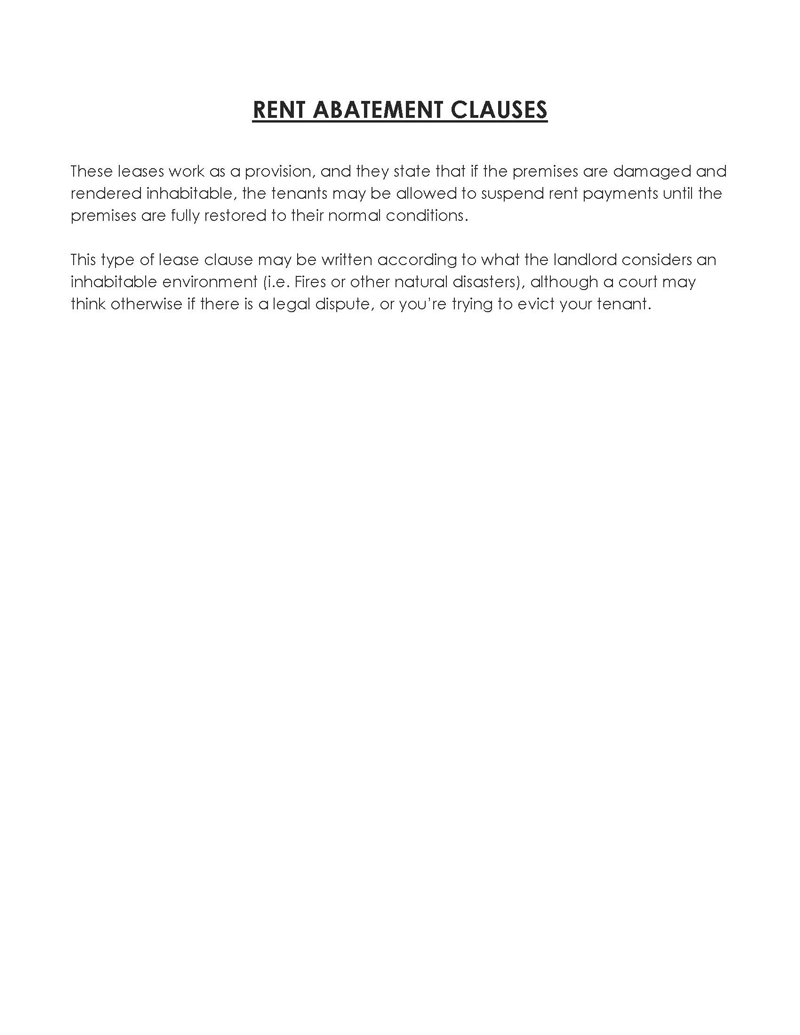


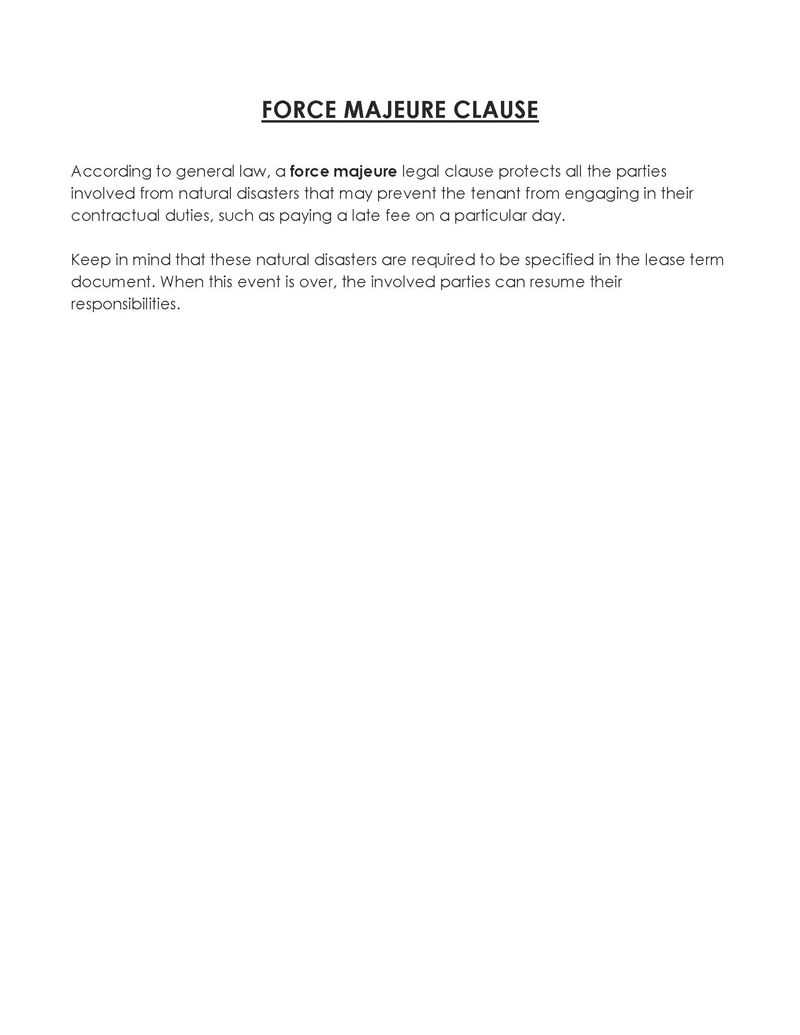
Why Would a Tenant Want to Terminate the Lease Clause Early?
There are several reasons why a tenant would want to terminate the lease early. Some of the common reasons include:
Military deployment
If your tenant is a military member and has been deployed, they may feel compelled to terminate their lease early. The Service Members Civil Relief Act permits those in the armed forces, i.e., the armed forces, the National Guard, and the Atmospheric Administration, to terminate their lease early to start active duty or if their orders take them 50-100 miles away from their home. However, the tenant must give you a 30-day notice and pay the average rental amount, with the excess being treated as a travel or relocation fee and not refundable.
Domestic violence
Another reason is if they or their family member(s) are victims of domestic violence. If this is the case, the victim and any other family members can terminate their lease early with a 30-day notice. In addition, in states such as Nevada and Washington, the landlord-tenant acts allow tenants who have been victims of domestic violence, i.e., acts of violence, sexual assault, or stalking, to terminate their leases early. Again, this can be helpful for your tenants and may also be required by law, so you should check with your state laws if you have any questions regarding this.
note
It is important to note that the points mentioned above are legal reasons you should release your tenants from their lease obligations without any damages. However, personal and professional reasons may still warrant an early lease termination, such as loss of income, job transfer, and health issues. In such cases, you can be compassionate and allow the tenant to find a solution or an agreeable way of terminating the lease agreement.
note
Like military duty, a tenant may opt to terminate their lease agreement early due to a job transfer or other professional reasons. As with military service, the tenant must give you 30 days written notice they are moving for a job and relocating. If it is a corporate move, then the company, in most cases, may decide to pay the tenant’s moving expenses and any penalty they may face due to terminating their lease early. In either case, you should consider talking to your tenant so that you understand the nature of their situation and offer them the best solution to meet both parties’ needs.
Conclusion
The lease agreement constitutes a legally binding contract between you and your tenant, which will dictate your rights as a landlord and your responsibilities to your tenant. Therefore, if you want to be a great landlord, you need to know how to handle your tenants. This includes being familiar with the lease agreement, voiding it if there is a breach, either by you or your tenant, and conducting proper checks before allowing anyone to occupy your property.
When preparing the lease agreement, you must include all the necessary clauses and provisions. This will ensure that your tenant will have everything they need and that the lease agreement is secure. It would be best to list all the key provisions in the lease agreement. This allows you to easily navigate the document for a smooth relationship with your tenants.
When the lease agreement ends early, don’t forget to keep a detailed record of the penalties, damages, and fees charged by the tenant. This record should be in a separate document, along with the date and time.









